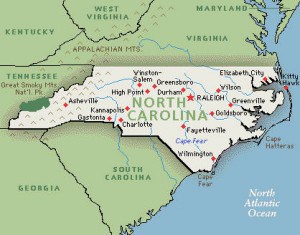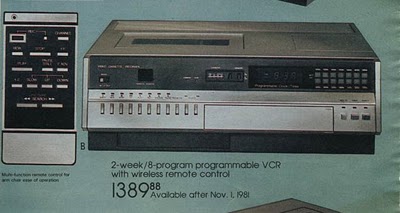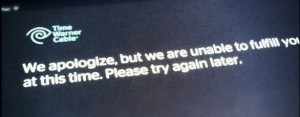 Good news to report for North Carolina consumers. With a coordinated pro-consumer pushback, we’re achieving some victories in the battle to stop big cable and phone companies from pushing community broadband networks out of the state. Since Rep. Marilyn Avila (R-Time Warner Cable) was not amenable to withdrawing the bill cable lobbyists authored, your appeals to members of the Finance Committee made a major difference: winning exemptions for the state’s existing community networks and redefining an under-served area to any community where 50 percent of households cannot obtain high-speed broadband service.
Good news to report for North Carolina consumers. With a coordinated pro-consumer pushback, we’re achieving some victories in the battle to stop big cable and phone companies from pushing community broadband networks out of the state. Since Rep. Marilyn Avila (R-Time Warner Cable) was not amenable to withdrawing the bill cable lobbyists authored, your appeals to members of the Finance Committee made a major difference: winning exemptions for the state’s existing community networks and redefining an under-served area to any community where 50 percent of households cannot obtain high-speed broadband service.
North Carolina’s local media is becoming increasingly aware of H.129 for the first time, and so are many consumers — outraged over reports state government is spending its valuable time working on the cable industry’s wishlist.
Today was a very important victory and we are glad to have done our part to win it, but this battle is by no means over. We fully expect Time Warner trickery — their lobbyists will be back next week to try and undo what we have accomplished together.
We’ve been here before. A de-fanged bill is okay, but a bill voted down altogether is better.
Please thank Chairman Mitchell S. Setzer for his call for a recorded vote, which helped us track who represents consumers and who fights for the cable company’s agenda.
We’d also like to thank Rep. K. Alexander, Rep. Faison, Rep. Luebke, Rep. Ross, Rep. H. Warren, and Rep. Womble for their strong support for better broadband in North Carolina. There will be more to thank along the way, but this is a good start.
We are continuing the consumer fight to see H.129 shot down as the travesty it represents. This proposed legislation does not deliver a single new broadband connection, improve ones that already exist, or deliver lower prices to anyone.
Citizens in Raleigh are making their feelings known on WRAL-TV’s website:
“NC should be encouraging and assisting rural cities and towns looking at doing this, not putting up obstacles. But I’m sure the Time Warner, Comcast and AT&T lobbyists have deep pockets full of excellent graft.”
“This all comes down to the city of Wilson. They offered every telecom and cable provider to provide 100Mbps internet access to 100% of the people in the city if they want it at a rate of $50/month (I think that was the amount). Every single private company laughed and said it was not profitable and they would take the contract. So, the City of Wilson took it upon themselves to provide the product the city wanted. Now, all of the companies are whining? Provide what the City of Wilson did at the price they did and there would be no problem. Don’t blame this on taxes. The simple issue is that TWC, Charter, and you name it want to make 100-200% profit and offer substandard high speed internet. “
“Come on NC. Reject the Bill and approve an order to allow cities to provide this technology if the monopolistic companies will not. Get them out of our state.”
“Frankly, if it were to mean that I could dump Time Warner Cable and their cra**y service and their “Oh we’re raising our rates again due to the Sun coming up 5 minutes late” attitude, I would be elated!”
“When will it ever be enough for the cable and phone companies? Their lines and equipment have been in place for YEARS and what do we get….rate increases every year, outages, lines cut, spotty internet service. It’s high time they have some competition. If they can afford to give new customers discounts for 12 months, why not keep the prices at that level with only moderate increase over time and then KEEP MORE customers in the fold? Just a thought!”
“The internet service offered by Wilson ROCKS. Twice the speed at half the price of TWC. No wonder they’re trying to block this from happening.”
The people are speaking, and they do not want state legislators moonlighting for the interests of cable and phone companies. Remind your legislators you want more choice, not less. Tell them to oppose H.129 and ask Rep. Avila to withdraw her bill.
Rep. Marilyn Avila (R-Time Warner Cable) at today’s House Finance Committee Meeting (1 Hour, 13 minutes)


 Subscribe
Subscribe






